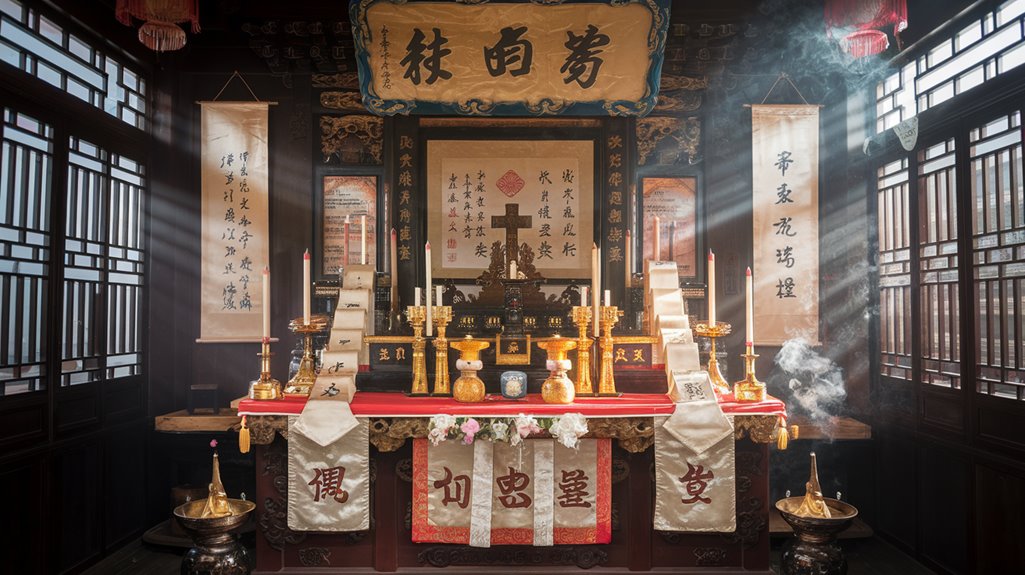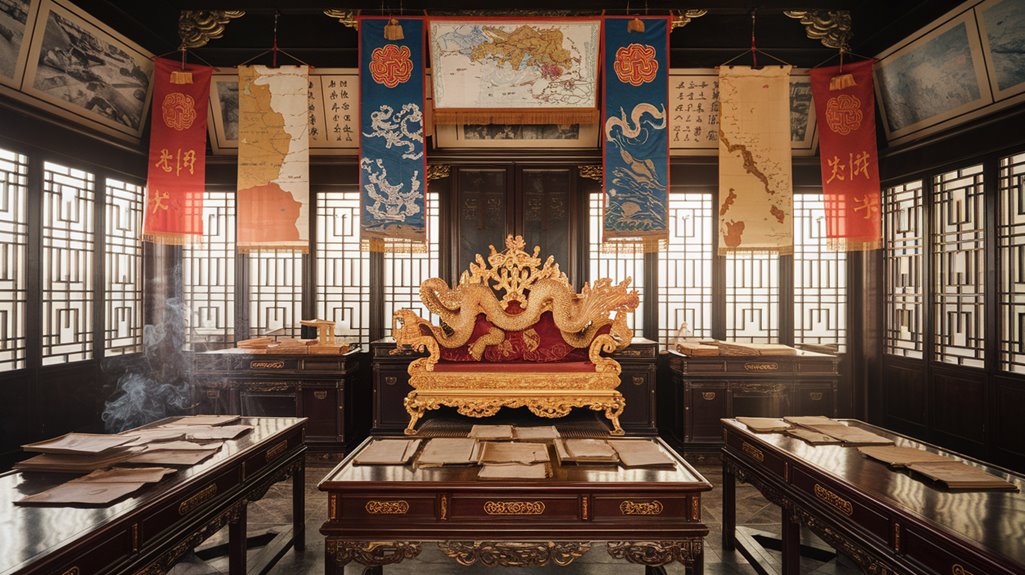The Taiping Rebellion: Led by Jesus’ Self-Proclaimed Brother
Like a divine drama that rivals the fervor of ancient crusades, you'll find the story of Hong Xiuquan both fascinating and disturbing. As China reeled under Qing Dynasty rule, this failed scholar transformed himself into something extraordinary – Jesus Christ's younger brother. You won't believe how his religious vision sparked a rebellion that claimed more lives than World War I, reshaped Chinese society, and introduced radical ideas that would influence future revolutions. Let's explore this remarkable tale of faith, power, and devastation.
The Religious Origins and Hong Xiuquan's Divine Claims

While many rebellions in Chinese history stemmed from economic or political grievances, the Taiping Rebellion emerged from a unique fusion of Protestant Christianity and traditional Chinese beliefs.
At its core was Hong Xiuquan's radical religious syncretism, combining biblical narratives with Chinese folk traditions. He claimed to be Jesus Christ's younger brother and established a divine family structure that mirrored Chinese hierarchical values. The movement identified other key figures like Feng Yunshan and Yang Xiuqing as divine sons of God. The rebellion's religious foundation was strengthened through Western missionaries who had established themselves in southern China.
You'll find Hong's interpretation particularly fascinating: he viewed God as an elderly figure in a dragon robe, reminiscent of Chinese deities, while positioning himself as the Heavenly King (Tien-wang) below Jesus but above earthly rulers.
This claim to divine authority was bolstered by his belief in the Mandate of Heaven, effectively challenging the Qing Dynasty's legitimacy through a potent blend of Christian and Confucian concepts.
The Rise of the Taiping Heavenly Kingdom
The formal establishment of the Taiping Heavenly Kingdom in 1851 marked a pivotal transformation from a religious movement into a full-fledged rebellion against Qing authority. Hong Xiuquan, declaring himself the Heavenly King, launched an ambitious campaign that would reshape China's political landscape. The rebellion would become the deadliest civil war in history, with 70 million casualties.
You'll find that Taiping ideology centered on a unique blend of Christianity and social reform, promoting equality and communal ownership. Their commitment to social change included a strict policy where private property was abolished and all land was controlled by the state.
After capturing Nanjing in 1853 and renaming it Tianjing, they established a new provincial governance system with five distinct regions. Under Hong's leadership, the kingdom appointed powerful figures like Yang Xiuqing as the East King and Feng Yunshan as the South King to manage these territories.
This administrative structure would later prove vital in implementing their radical social and economic reforms throughout their controlled regions.
Military Campaigns and Territorial Expansion
Following their establishment in 1851, Taiping forces launched aggressive military campaigns that rapidly expanded their control across southern China. Their military strategy focused on capturing key cities and establishing a strong territorial presence. The rebels massacred entire populations of Manchu civilians in conquered territories.
You'll find their most significant territorial gains included:
- Capturing Nanjing in March 1853, making it their capital
- Launching the Western Expedition along the Yangtze River in May 1853
- Securing control of multiple provinces including Jiangsu, Anhui, and Hubei
- Taking Hangzhou, Changzhou, and Suzhou during their 1860 revival
- Maintaining their stronghold until Zeng Guofan's siege of Nanjing in 1862
The Western Expedition was divided into three separate armies, each targeting different regions along the Yangtze River.
Despite initial successes, their ambitious campaigns ultimately faltered.
The failed Northern Expedition to capture Beijing, combined with internal power struggles and opposition from the Western-trained Ever-Victorious Army, gradually eroded their territorial control.
Life Under Taiping Rule: Social and Religious Reforms
As Taiping forces expanded their territory, they implemented sweeping reforms that radically transformed daily life in their controlled regions.
You'd find a completely restructured society where traditional Chinese beliefs were replaced with their unique interpretation of Christianity. The rebellion's leader Hong Xiuquan adopted a radical Christian movement to justify overthrowing Qing authority. Through land redistribution, peasants gained access to previously inaccessible resources, while the Taipings abolished private property and class distinctions to promote social equality. The movement maintained strict control through a system of public floggings for those who violated their laws.
If you lived under Taiping rule, you'd notice strict regulations governing daily behavior. They banned opium, alcohol, gambling, and foot binding.
They also enforced gender separation and destroyed Buddhist temples and Confucian relics. The administration introduced a new legal system and examination process based on biblical teachings, allowing both men and women to participate – a revolutionary change from traditional Chinese governance.
The Devastating Aftermath and Historical Impact

While China had endured many conflicts throughout its history, none matched the catastrophic scale of the Taiping Rebellion's aftermath. The humanitarian crisis claimed 20-30 million lives through warfare, famine, and disease, while triggering massive economic decline and political instability. The rebellion's radical religious ideals promoted equality and challenged traditional Chinese beliefs. Led by Hong Xiuquan, the movement established a disciplined army that attracted over a million followers.
You'll find these devastating effects rippled through generations:
- Entire regions suffered severe population loss and agricultural depression.
- The Qing government's tax revenue plummeted, forcing a shift to indirect taxation.
- Foreign powers gained unprecedented influence as China's sovereignty weakened.
- The Self-Strengthening Movement emerged as a response to exposed weaknesses.
- Long term recovery actually accelerated industrialization in affected areas.
Despite the immense destruction, the rebellion's aftermath reshaped China's economic landscape, leading to unexpected modernization and urban development in heavily damaged regions.










